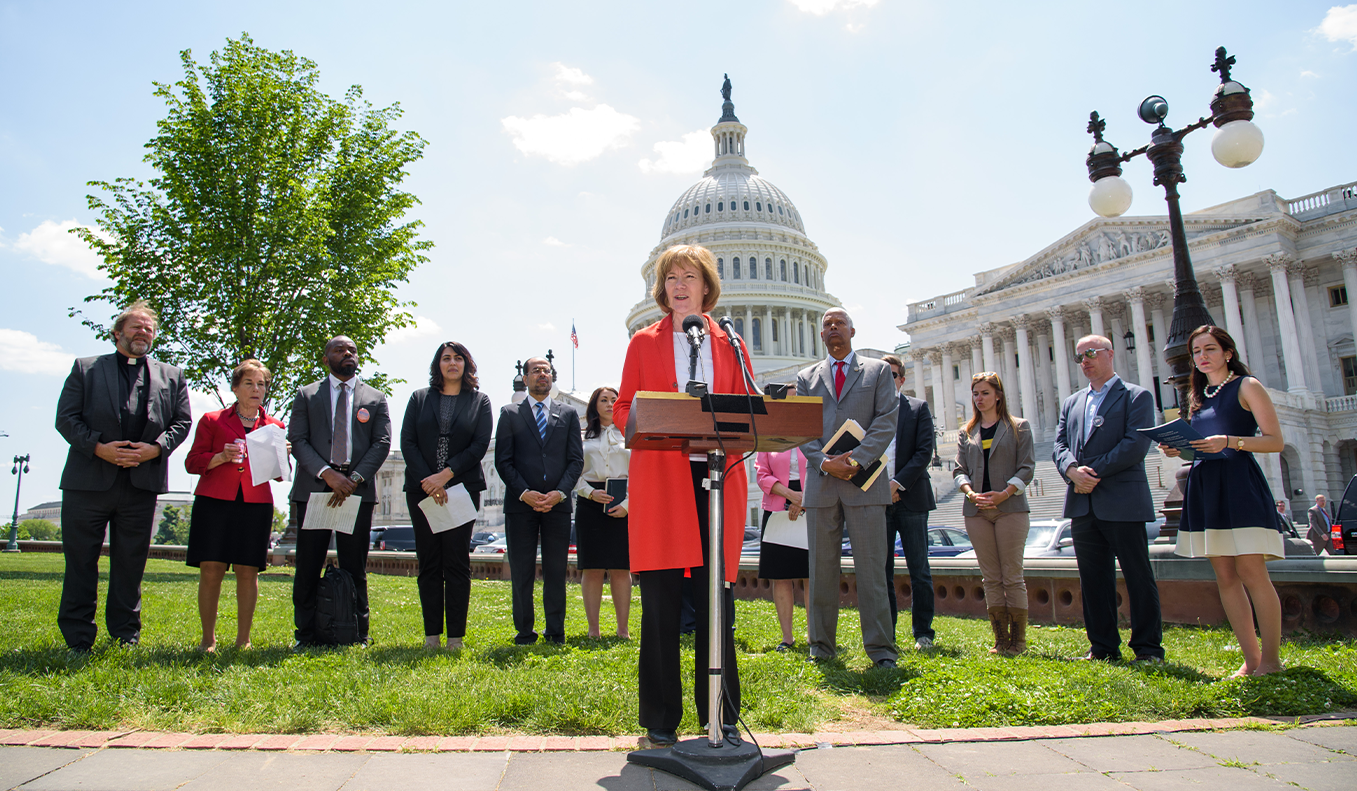Latest Newsletters
Traveling Across Minnesota
August was a jam-packed month, and during the Senate’s annual August recess, I was able to travel to communities across the state and hear from Minnesotans about issues that matter to them most. These visits help inform my work in Washington, D.C. and will be valuable as the Senate returns this month to finish work on transformative budget legislation that will not only address the continuing economic fallout from the pandemic, but also rebuild our nation’s crumbling infrastructure, create jobs, cut taxes, lower costs for Minnesota working families, and address the urgent threat of climate change. Important Minnesota Events During August Recess I began the August recess by chairing a Senate subcommittee field hearing in Minneapolis to examine Minnesota’s current and future transit needs in both rural and urban communities across our state. I heard from transit leaders from around Minnesota, as well as the nation’s top transit official, Nuria Fernandez of the Federal Transit Administration, who also joined me in riding the local light rail and touring local transit sites. Throughout August, I held conversations on my efforts to make child care available and affordable to working Minnesota families, and on my work to expand broadband networks in communities that currently are not connected. I visited River’s Edge Hospital and Clinic in St. Peter with Senator Klobuchar and U.S. Agriculture Secretary Tom Vilsack to discuss the importance of rural healthcare access. These issues will be top priorities for me in the upcoming Senate budget negotiations. Visiting schools including North Community High
Help Is On The Way
The American Rescue Plan Signed Into Law When President Biden signed into law the $1.9 trillion American Rescue Plan (ARP) this week, it was a bold and historic response to a devastating pandemic that – for more than a year – has upended the lives of people in Minnesota and across the country. The pandemic has taken more than 500,000 lives, strained our public health system, closed schools, and stolen millions of businesses and jobs. I strongly supported the American Rescue Plan after hearing from thousands of Minnesotans throughout this past year about the devastating toll the virus has had on their lives. This new law will arm the nation with important tools to fight the deadly pandemic and deliver badly-needed resources to help restore the nation’s health and economic well-being. It not only delivers much-needed support for coronavirus testing and vaccines, as well as help for front line health care workers, but also provides assistance for hard-hit families, businesses, farmers, veterans, and Tribal communities. It will help reopen our schools safely, provide direct support and tax relief to struggling families, and give our states and communities needed resources to build resilience and build back better. With a growing number of people in Minnesota and across the country getting vaccinated every day, I’m optimistic that this package represents a turning point in our year-long fight to crush the virus and to get Americans back on their feet. Direct Help for Struggling Families The ARP will bring immediate relief to families
Notes From The Capital: April 2019
Expanding Access to Mental Health Services for Students I’ve learned the lessons of depression the hard way. It’s something I experienced first in my late teens, and then again in my 30s. I know how blessed I am to have had early help. Everyone should have the same access to mental health care, regardless of our insurance, our zip code, or our age. Yet too many people can’t get the help they need, and that includes young people. Just last week, I heard from educators, students, parents, and mental health professionals about the need to address the mental health of
Notes From The Capital: May 2019
Continuing the Fight to Lower Prescription Drug Prices I’m working to tackle skyrocketing prescription drug prices because we are at a crisis point. Thousands of people are rationing their life-saving medication because they are struggling to afford them. Patients with health insurance are facing higher out-of-pocket costs, and seniors on a fixed income are being forced to choose between paying for groceries and paying for medicine. In the wealthiest country in the world, that is unacceptable. This month I fought to get a number of measures I championed included in a larger bipartisan Senate health care package to address rising
Notes From The Capital: June 2019
Introducing Bipartisan Legislation to Lower the Price of Insulin and Hold Manufacturers Accountable Thousands of people struggle to afford the insulin that keeps them alive. And a recent study found that one in four diabetes patients admitted to cutting back on insulin prescribed by their doctor because of cost. Some Americans are even paying with their lives because of this dangerous practice—people like the late Minnesotan Alec Smith, who died at 26 because he couldn’t afford his insulin. It shouldn’t have to be this way. While I support long-term solutions to bring down prices, no one should have to suffer
Notes From The Capital: July 2019
Continuing the Fight to Drive Down Insulin Prices This month I met Travis, a man from Eveleth, Minnesota, who showed me two vials of insulin. He told me he paid $27 for one vial, and $350 for the other vial. Same insulin, same manufacturer. The difference? The cheaper vial was bought in Canada while the more expensive one was bought in the United States. Completely ludicrous. I recently introduced a bipartisan bill to provide insulin on an emergency basis and put insulin manufacturers on the hook by requiring drug companies to foot the bill. It will also promote market competition
